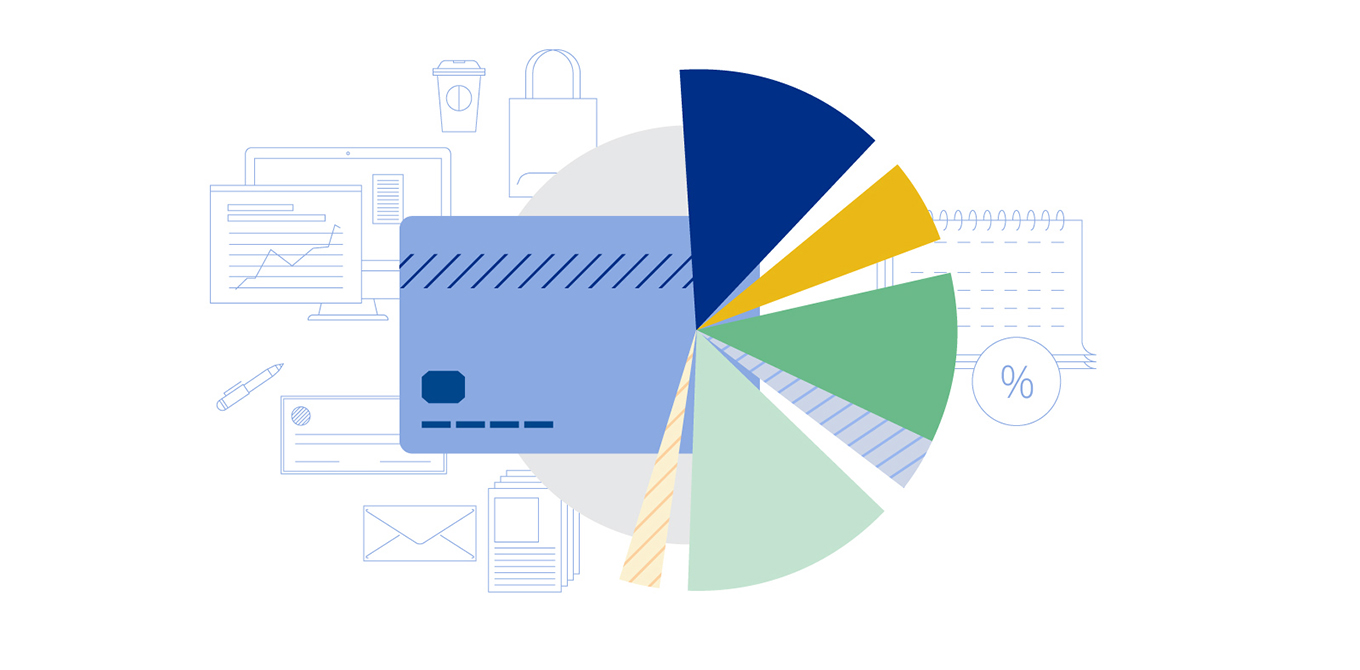5 Habits of People with Good Credit
People with good credit don't build their scores overnight. Their ratings are the result of consistent, repeatable habits. Putting these practices into action can help anyone join the ranks of those with excellent credit scores.
1. They're financially organized.
You can't improve what you don't know. Building good credit starts with understanding your current financial situation. That means regularly checking in on your open lines of credit or other accounts like student loans, credit cards, or home loans. Taking time to make sure you have a complete list of your sources of income, the lines of credit you have open, and any outstanding balances is the foundation of a good credit score.
Knowing what money you have coming in and going out is essential for practicing every other habit on this list. Creating and using a budget that works for you will go a long way toward achieving a great credit score. It will also help you keep your spending within your means—one of the most important aspects of keeping your credit score healthy.
2. They review their credit report at least annually.
Your credit report and credit score are two separate things. Think about your credit score as your GPA and your credit report as the document showing the assignments that got you that grade. This includes information on any accounts you have open, like credit cards or other loans. It also shows bankruptcies or other judgments against you, your payment history, and credit checks from other companies.
Make it a habit to check your credit report at least once a year. Doing so lets you stay on top of opportunities to raise your credit score. That might mean correcting mistakes, like accounts you've paid off but are still reporting as open, or watching for signs of identity theft.
You can always request your free credit report once per year at www.annualcreditreport.com. However, Equifax, Experian, and Transunion are currently offering free weekly credit reports due to the recent period of economic uncertainty.
3. They prepare for emergencies.
The most significant factor in maintaining a good credit score is your payment history. People with good credit scores make a habit of making payments on time, using tools like auto-draft or regular reminders to make sure they don't forget when a bill is due.
That also means preparing so that events like a job loss or unexpected medical costs won't keep you from making payments. Planning ahead by habitually paying into an emergency fund with three-to-six months of living expenses saved up will make sure you keep your accounts current even during a financial rough patch.
4. They manage their credit utilization.
Your credit utilization is an important component of your credit score. It's just what it sounds like—how much of your available credit you're utilizing. For example, say you had $20,000 in available credit across your credit cards. If you've got $5,000 in debt across those cards, your credit utilization ratio would be 25 percent.
There's no exact answer on what the right credit utilization ratio is for every person. However, Equifax recommends keeping your credit utilization at 30 percent or lower.
Make sure to check your credit utilization a few times per year. This will let you know how new lines of credit will affect your ratio and potentially impact your credit score.
5. They think ahead.
Building a good credit score means considering the future before you open or close an account.
Credit bureaus consider the age of your accounts when calculating your credit score. Having older accounts without a history of past-due balances demonstrates that you're a trustworthy borrower. That means you should think twice before canceling a credit card you haven't used in years—it may be positively contributing to your credit score.
You should also make it a point to examine how opening a new account might impact your score. A new car loan or other line of credit will affect your debt-to-income ratio. Even just the credit check lenders make when reviewing your application can cause your score to drop a few points. Making it a point to examine whether the pros of getting a new line of credit outweigh the cons before choosing to apply.
Great habits create great credit scores
The right habits can help anyone reach or keep a great credit score. By keeping on top of your accounts and credit report, making sure emergencies don't keep you from paying your bills on time and understanding the impact of opening or closing accounts, you can achieve excellent credit.




